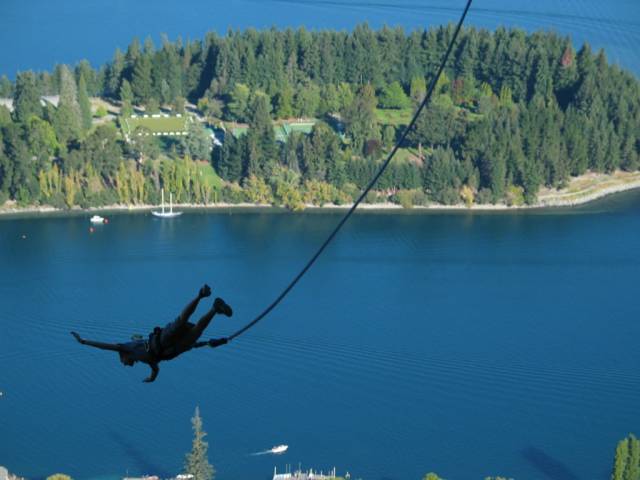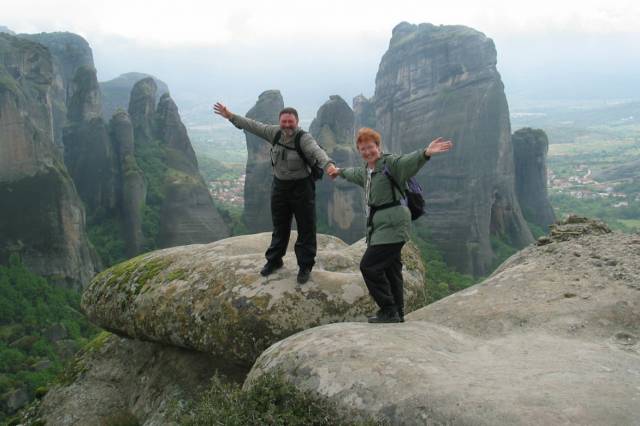Ask new retirees about their plans, and you will almost always hear, “I want to travel.”
But more and more, “I want to travel” is changing. Not all retirees are going the stereotypical “travel around the country in an RV” route. Many are thinking bigger and jumping into the long-term travel game.
That’s what my husband and I decided to do when we retired. We sold our house, our cars, most of our belongings, and left town on a trip around the world.
After a lifetime of working, retirement should be the big payoff – an age of discovery in which you have the opportunity to explore not just the world, but also your options for the next chapter in your story. Traveling the world opens up new possibilities for savoring the rest of your days.
Timing is Everything
Retirement comes with major changes. For perhaps the first time, you have the time to do what you want. This is huge, and nothing can prepare you for the sense of freedom (or the sense of loss, depending on your point of view). But like everything in life, retirement is what you make it.
Depending on what you choose to do with your newfound time, retirement can become a beginning, not an end, and RTW travel is the perfect way to celebrate this new phase of your life.
Make a clean break with your past life and have an adventure. There will never be a better time.
For us, retirement was like being given a magic window of opportunity. We were able to retire early, we had our health, and our family was doing well, too. We felt like the planets were in alignment, and this was our time.
I’d be lying if I said we weren’t scared. Plenty of people told us we were crazy. But our worst fear was that we would look back someday and think, “Why didn’t we go when we had the chance?”
Read 11 Reasons to Stop Dreaming and Start Planning Your RTW Trip
Chucking it All
Going homeless from Day 1 like we did is not for everyone, but it is an option. You’re probably thinking about selling the family home anyway. Why not sell now and decide where you want to live after your trip?
Before you dismiss the idea of selling your home as totally and utterly crazy, consider this for a moment:
- No mortgage to pay.
- No house to clean.
- No lawn to mow.
- No anticipating the next appliance failure.
- And no bills other than your credit cards.
Pretty heady stuff, isn’t it? Plus, by banking the proceeds from the sale, you’ll be ready to buy again whenever (and wherever) you want.
Retirement is also an ideal time to get rid of things you no longer need and choose a leaner lifestyle. Of course, even we did not sell everything. We were fortunate enough to have a relative who gave us a bedroom and some space in the basement to store the personal items we could never part with. But we did jettison most of our possessions, and we had no regrets. When we finally bought another house, we furnished it completely differently from our previous home, and it was exhilarating to start with nothing – like newlyweds all over again.
Retiring provides a great opportunity to clean out all that junk you have been hoarding – you’ll probably be astounded by how much you’ve accumulated.
What saddened me most was that so much of it had wasted its useful life sitting on a shelf. I could have sold (or given) that monstrous microwave to somebody years ago, and it would have been happily zapping meals rather than collecting dust in my basement. And what about all those books? Why did I insist on keeping books in a box in the attic when somebody else could have been enjoying a good read as I once did?
Selling our house and most of our possessions was not easy. In fact, at times, it was downright painful. But at one point, the pain was replaced by a sense of euphoria, a true feeling of liberation as we unfettered ourselves from the past.
Read What to Do With All Your Stuff While You’re Gone
How We Did It
We started our planning process by opening up a World Atlas and creating a list of places we wanted to see. I used AirTreks to purchase our airfares and received good advice in the bargain, like making a stop in Dubai that was not in our original plan.
Here is our 8½-month itinerary in a nutshell:
Philadelphia – Los Angeles – Cook Islands – Christchurch – Overland to Auckland – Sydney – Ayers Rock – Cairns – Saipan – Tokyo – Hong Kong – Singapore – Dubai – Athens – 5 months roaming Europe – Munich – Philadelphia
Every RTW journey is intensely personal, and only you can decide what is right for you. Here are some key elements of ours:
- Starting our trip in the Cook Islands offered an idyllic setting to transition from our old life to this new adventure. After all the excitement of leaving home, we needed this time to relax and prepare for what was to come.
- Saipan may seem like an unusual choice, but it was a highlight of our trip, and a good example of how to make a RTW trip uniquely your own. One of my husband’s relatives had been killed in Saipan during WWII, and we wanted to find out the circumstances. I can’t tell you how moving it was to learn about Uncle Charlie’s critical role in winning the war in the Pacific and to see his name carved on the Saipan American Memorial.
- The first part of our trip was well-planned, but once we arrived in Athens, we had no reservations and no return ticket – what a sense of freedom! We never backpacked around Europe when we were young(er), so now we finally had our chance.
- When you travel for this long, it’s a good idea to take an occasional “vacation.” Our favorite relaxation spot was the incomparably tranquil Lake Bled in Slovenia where we rented an apartment and lived like normal people (more or less) for two weeks.
After we returned from our trip, people would often ask, “What surprised you the most?”
I always answered without hesitation, “How easy it was!”
Check out our trip planner to help you get started planning your RTW trip
Seeing the World Your Way
The beauty of being retired (or taking a long-term trip no matter your age) is that your time is your own. As my husband likes to say, “Every day is a Saturday!” So when you plan your travels, take your time – no need to rush. With more time in each location, you can adjust to the local rhythms and better absorb the nuances of the culture.
Travel is so much more than just seeing the sights. Travel opens your eyes to a world of options brimming with different ways of doing things and with people whose life experiences are totally unlike your own.
What is the greatest pleasure of travel? For us, it’s the personal interactions, the special moments of connection with other people, that will stay with us forever.
The slower you travel, the more people you will meet.
- Like Noel, a Canadian teaching at a university in Qatar, who told us fascinating stories of life in that small Middle Eastern country — including the fact that every newly married couple in Qatar receives $500,000 from the government to “help them get started!”
- And Walela, originally from Ethiopia, who won a visa to the United States in a national lottery, leaving behind a small house she shared with 16 other family members and a bedroom lined with mattresses.
- Or gentle Lise, who explained how much the Queen of Denmark meant to her – and taught us how to begin each day in her Copenhagen apartment with a generous shot of Schnapps!
Charting a New Course
One thing I learned when we traveled the world is that there are many ways to live a life. You will probably return with new ideas about how you want to live yours. Maybe you’ll decide to move to a different part of the country or live in an apartment instead of a house. You may even fall in love with some foreign locale and decide to go the expat route, living overseas for a while.
Hopefully, you’ll want to make travel an important part of your new life. My husband and I still take two major trips every year. In order to finance our travel lifestyle, we live in a small house, make do with one car, and reduce expenses wherever we can. This involves simple choices like eating in instead of out, hanging our clothes outside rather than using the dryer, giving our grandchildren fun times instead of fancy toys, and shopping at flea markets rather than the malls.
Once you’ve tackled the globe, anything is possible.
Discover a second career as a writer, photographer, or watercolor artist. Go back to school to learn a new language, take an art appreciation course, or study history. Your story does not end when you retire – in many ways, it is just beginning.
You only live once, but if you live right, once is enough.
Photo credits: 2 – Ian Muttoo, all others courtesy of Frank Supsic and may not be used without permission



